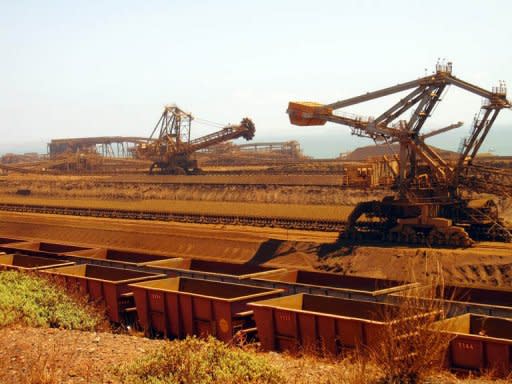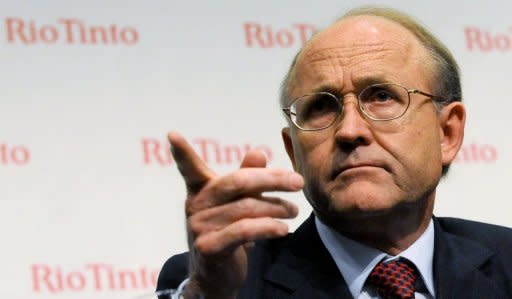Rio Tinto: world outlook better, demand to double
Rio Tinto chairman Jan du Plessis said Thursday he was more confident about the global outlook than he was six months ago, with demand for commodities expected to double over the next 20 years. The global miner's chief said the world continued to face volatility driven by the European crisis, but the company was optimistic about promising signs of recovery in the US. Du Plessis told the company's annual general meeting in Brisbane that despite China growing more slowly than in recent years "the rate of growth is still very favourable in comparison to global economic growth". "Over the longer term, we continue to believe the outlook remains strong with demand for many of the products we produce expected to double over the next 20 years," he said. With emerging markets industrialising and people moving to cities, he said Rio was "well placed to supply this increase in demand for metals and minerals to meet rising infrastructure and consumption needs". "Overall, we are somewhat more confident than six months ago, in addition to which I believe our strong balance sheet will serve to strongly underpin our business in the face of short-term volatility," he added. The company strategy remained the same -- "to invest in and operate large, long-term, cost-competitive mines and businesses". Rio has approved capital expenditure for 2012 of US$16 billion, du Plessis added. Chief executive Tom Albanese told the AGM the company was committed to expanding iron ore production from a current 225 million tonnes a year to 283 million tonnes, and potentially to 353 million tonnes. Iron ore, mostly from the Pilbara region in Western Australia, currently represents nearly 80 percent of the company's earnings. "Spotting the shoots of Chinese growth a decade ago and investing in iron ore mines means we have been producing at record levels at times of record prices," Albanese said. He added that the company was tackling rising costs and striving for productivity gains. "Increasing costs are an industry-wide problem, particularly in hotspots like here in Queensland, and I am determined to be on the front foot in tackling this challenge," he said. "We must ensure we are proactively tackling issues now that may impact productivity in years to come."



